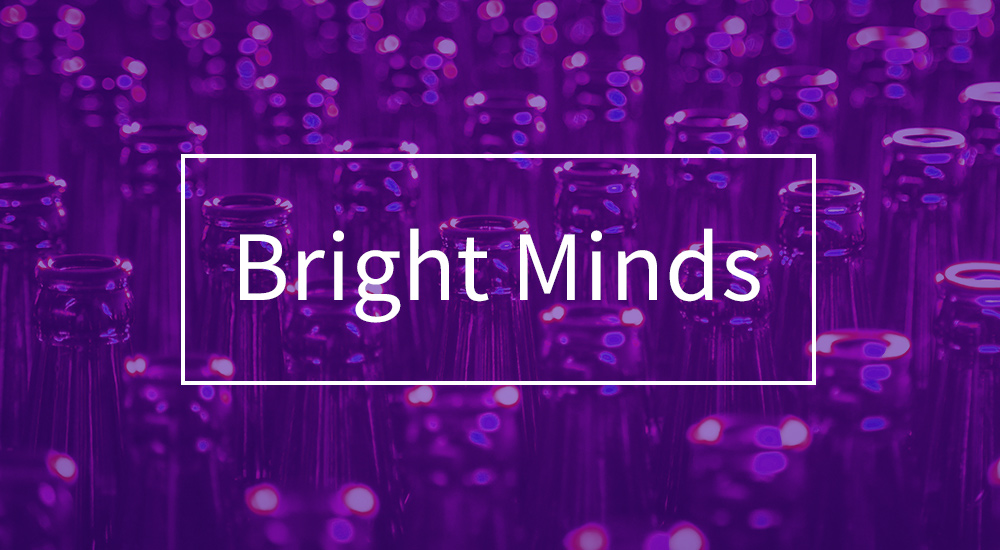Health inequalities and no/lo drinks the focus of upcoming webinar

Are no- and low-alcohol drinks truly a healthier alternative for everyone? PhD student Lucy Burke will explore this question in a free online session on Wednesday 5 February 2025. Lucy's research investigates the factors that influence alcohol consumption, examining the rise of alcohol-free and low-alcohol (no/lo) drinks and their potential impact on health inequalities.
The rise of no- and low-alcohol drinks has been a significant trend in recent years, and their consumption has been promoted by the UK Government as a public health strategy. However, research suggests that no/lo drinks may not be equally accessible to all.
In a free online session on Wednesday 5 February 2025, PhD student Lucy Burke will present her research investigating the factors that influence alcohol consumption, with a particular focus on the growing popularity of no- and low-alcohol drinks.
Lucy's research delves into the motivations behind alcohol consumption and examines how the emergence of no/lo drinks may be impacting health inequalities. Evidence suggests that these beverages are more commonly consumed by socially advantaged groups. By understanding why people choose to drink alcohol in the first place, Lucy aims to shed light on the socio-economic disparities often observed in no/lo consumption.
Lucy will be joined by her PhD supervisor, Colin Angus, Professor of Alcohol Policy within Sheffield Addictions Research Group and a key member of the No/Lo Project research team. This four-year project, funded by the National Institute for Health Research (NIHR), is investigating the potential health benefits of consuming alcohol-free or low-alcohol drinks.
How to sign up
This is a great opportunity to hear some of the latest research on no- and low-alcohol drinks. Register now for the session, entitled 'What's the point of a pint with no alcohol?', which will take place on Wednesday 5 February 2025 from 12pm to 1pm. It will be held online via Zoom and is free of charge.
The webinar is part of Bright Minds, a series of online TED-style talks organised by Campaigns and Alumni Relations at the University of Sheffield which gives PhD students the opportunity to present their research across a wide range of topics.
-
SARG researcher Dr Parvati Perman-Howe secures NIHR Career Development Award
We are delighted to announce that Dr Parvati Perman-Howe, a Research Associate within the Sheffield Addictions Research Group (SARG), has secured a highly sought-after Career Development Award.
-
Professor John Holmes contributes to major new report outlining actions to tackle alcohol harm
SARG Director Professor John Holmes was part of an expert panel that supported the development of 'A Healthier Future: A long-term vision to tackle alcohol harm in the UK', a significant new report published by the Institute of Alcohol Studies (IAS) this week.
-
SARG researchers present on economic modelling and wastewater surveillance at European Public Health Conference
Two researchers from the Sheffield Addictions Research Group (SARG), Dr Charlotte Head and Dr Esther Chanakira, will showcase innovative local-level tools for policy design, including economic modelling and wastewater surveillance, at the European Public Health (EPH) Conference in Helsinki from 11–14 November 2025.
-
SARG to present latest research on alcohol-free and low-alcohol drinks at SSA Annual Conference 2025
Researchers from the Sheffield Addictions Research Group (SARG) are set to present their latest findings on alcohol-free and low-alcohol drinks at the Society for the Study of Addiction (SSA) Annual Conference 2025.
You might also be interested in…
-
SARG researcher Dr Parvati Perman-Howe secures NIHR Career Development Award
We are delighted to announce that Dr Parvati Perman-Howe, a Research Associate within the Sheffield Addictions Research Group (SARG), has secured a highly sought-after Career Development Award.
-
SARG to present latest research on alcohol-free and low-alcohol drinks at SSA Annual Conference 2025
Researchers from the Sheffield Addictions Research Group (SARG) are set to present their latest findings on alcohol-free and low-alcohol drinks at the Society for the Study of Addiction (SSA) Annual Conference 2025.
-
New report reveals further growth and key trends in alcohol-free and low-alcohol drinks market
A second Monitoring Report from the Sheffield Addictions Research Group has been published, revealing further growth in the alcohol-free and low-alcohol (no/lo) drinks market and offering new insights into consumer behaviour and pricing.
